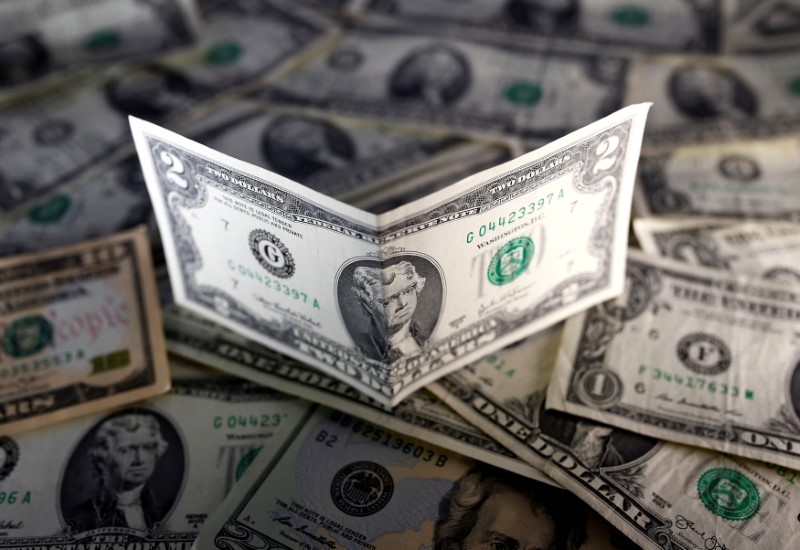By Richard Leong
NEW YORK (Reuters) - The dollar fell on Thursday against a basket of currencies as traders booked gains following a solid November on bets of a stronger U.S. economy under a Trump administration and on caution ahead of Friday's government payrolls report.
The greenback weakened against sterling on a perceived crack in Britain's "hard Brexit" line on leaving the European Union after Brexit minister David Davis said Britain would consider paying into the EU budget for market access.
The pound rose as much as about 1.6 percent to a three-week high against the dollar of $1.2696. It was last up 0.5 percent at $1.2575.
"The U.S. dollar is trading heavily against most of the major currencies, but the general tone appears consolidative in nature," said Marc Chandler, global head of currency strategy at Brown Brothers Harriman, in a research note.
The dollar index, which measures the greenback versus a basket of six currencies, fell 0.4 percent to 101.06. It reached a 13-1/2-year peak of 102.05 last week, and for the month of November it gained 3.1 percent (DXY).
The greenback pulled back from an earlier nine-month peak against the yen, at 114.82, before falling 0.4 percent to 114.03 yen in late trading
The dollar's wobbly start in December reflected higher U.S. Treasury yields following upbeat data on manufacturing and construction spending. (US10YT=RR)
Investors are waiting to see whether the government's jobs report for November, due at 8:30 a.m. (1330 GMT) on Friday, will support the view of faster U.S. growth, which could stoke further gains for the dollar.
The euro strengthened after Reuters reported the European Central Bank will extend its bond purchases beyond next March and consider sending a formal signal next week that the asset purchase program will eventually end.
Prolonging the ECB's quantitative easing was not unexpected as European growth remains sluggish, but even a token gesture that QE would end is positive for the euro.
"When you think the potential that the QE gravy train is not indefinite, that would cause upward pressure on the euro," said Jennifer Vail, head of fixed income research at U.S. Bank Wealth Management in Portland, Oregon.
The euro was boosted further after French President Francois Hollande said he will not seek a second term, a move seen paving an easier path for conservative Francois Fillon to defeat Marine Le Pen, head of the National Front party, in 2017.

The euro was up 0.6 percent at $1.0649